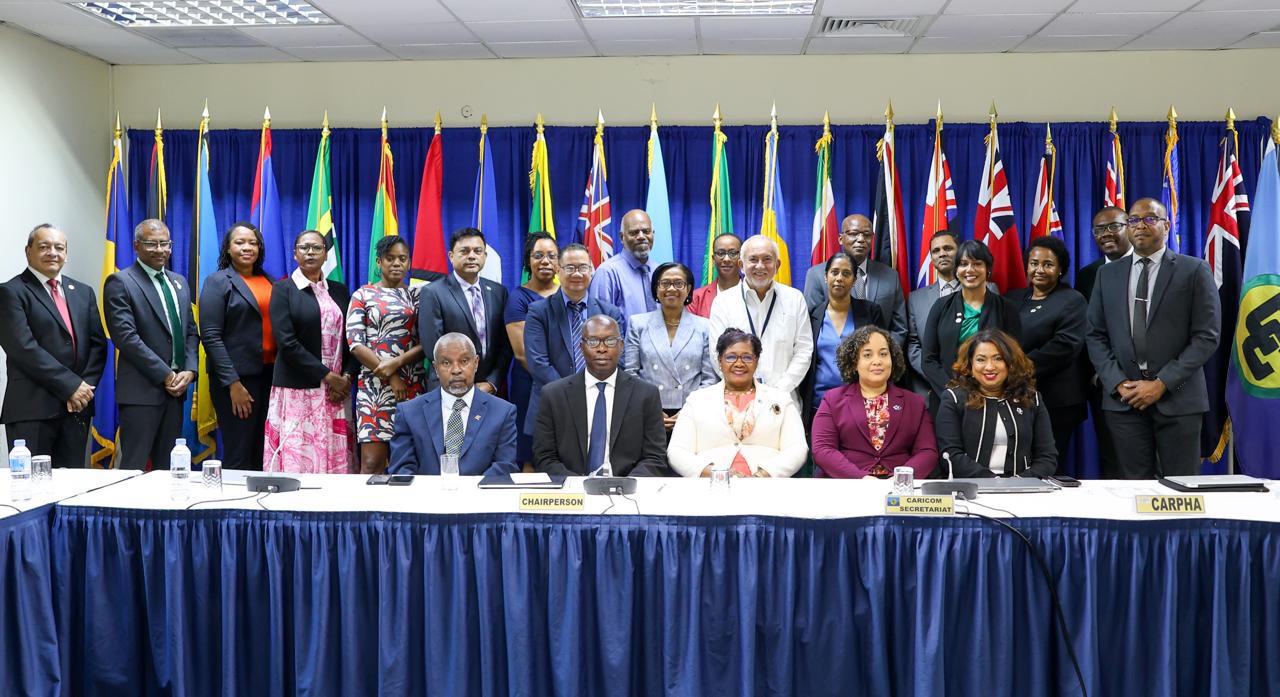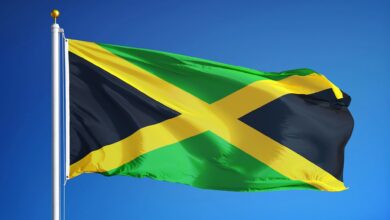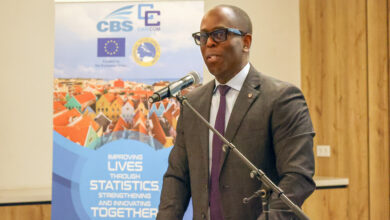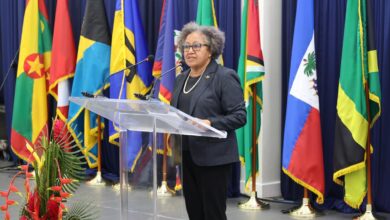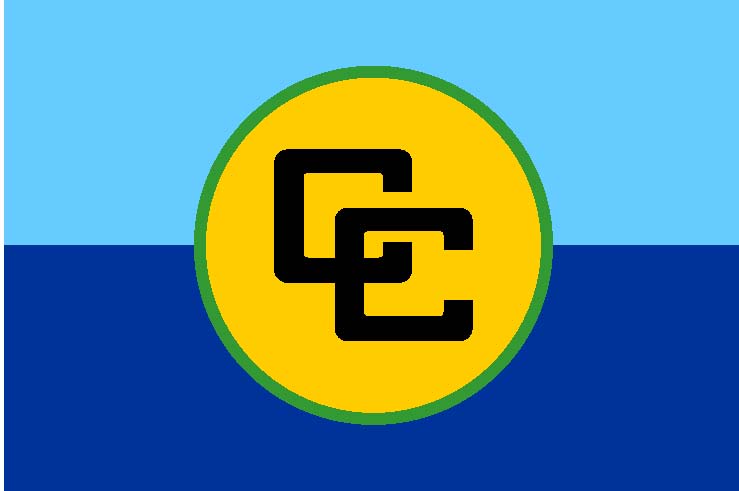“Now more than ever, working together as a unified Region will be critical to the continued strengthening and resilience of our healthcare systems in the face of the changing geopolitical and global economic landscape.”
Dr Shawn Charles, Chief Medical Officer, Grenada and Chair Thirty-Third Meeting of Chief Medical Officers
Thursday 8 May 2025 (CARICOM Secretariat, Turkeyen, Greater Georgetown): Global health policies are changing, and development partner support for regional public health programmes is declining. The Caribbean must find new avenues for funding and technical assistance or may risk losing the gains made over the years in infectious disease surveillance and control. This was the consensus of technical leaders in public health at the Thirty-Third Meeting of Chief Medical Officers held in Barbados from 5-6 May.
Specifically, the two-day meeting concentrated on the impact of shifting global policies on healthcare systems in the Caribbean, including the reduction in funding for critical programmes such as HIV and AIDS.
“CARICOM must chart a new course for public health resilience,” underscored the Chair, Dr Shawn Charles, Chief Medical Officer of Grenada.
In his opening remarks, Dr Charles advocated for enhanced collaboration among public health practitioners to build more resilient health systems.
“Now more than ever, working together as a unified Region will be critical to the continued strengthening and resilience of our healthcare systems in the face of the changing geopolitical and global economic landscape,” stated Dr Charles.
He reminded the meeting that universal access to quality essential health services is considered a right for the people of the Caribbean Community. He urged the technical leaders in public health to reaffirm their commitment and continue striving to achieve this in the face of existing and emerging challenges.
“This will require a renewed inward focus on strengthening and ensuring the sustainability of our regional institutions and coordinating mechanisms,” underscored the Chair.
In her remarks, Director of Human Development at the CARICOM Secretariat, Helen Royer, also illustrated the impact on Caribbean health systems.
“This Meeting is coming at a time when we are navigating shifts in global health policies; we also recognise that these changes have already had some repercussions on our healthcare systems and can have severe impact on our ability to deliver as usual. The reduction in funding for HIV and AIDS programmes poses a threat to ongoing treatment and prevention efforts,” stated the Director.
She also warned that declines in global support for surveillance and infectious disease control could hinder the Region’s ability to effectively manage outbreaks.
“Similarly, the diminishing commitment to climate change initiatives and monitoring systems amplifies the urgency of building climate-resilient health infrastructure that can withstand adverse environmental challenges,” added the Director.
Over the two days, there were also robust discussions on public health issues critical to ensuring resilient health systems. These included pandemic preparedness and response, regional health security, and updates on the Port-of-Spain Declaration, providing a comprehensive overview of the current public health landscape in the Region.
The annual meeting facilitates dialogue and knowledge sharing among technical leaders in public health. It provides an opportunity for them to review the Region’s health agenda, share updates on health systems strengthening, and recommend and advocate for new policies.
Recommendations from the Meeting will contribute to key health policies, support identification of and advocacy for the visibility of priority health issues, and actively shape strategic interventions for better health outcomes for the people of the Caribbean Community.
Editor’s Notes:
Chief Medical Officers and technical leaders in public health from twelve (12) CARICOM Member States and five (5) Associate Member States participated. The Member States were Antigua and Barbuda, The Bahamas, Barbados, Dominica, Grenada, Guyana, Jamaica, Montserrat, Saint Lucia, St. Kitts and Nevis, St. Vincent and the Grenadines and Suriname.
Participants from the following Associate Members were present: Anguilla, Bermuda, the British Virgin Islands, the Cayman Islands and the Turks and Caicos Islands.
Development partners and representatives from technical public health organisations, including the Pan American Health Organisation (PAHO), Caribbean Public Health Agency (CARPHA), Healthy Caribbean Coalition and the CARICOM Regional Organisation for Standards and Quality (CROSQ), also participated.

